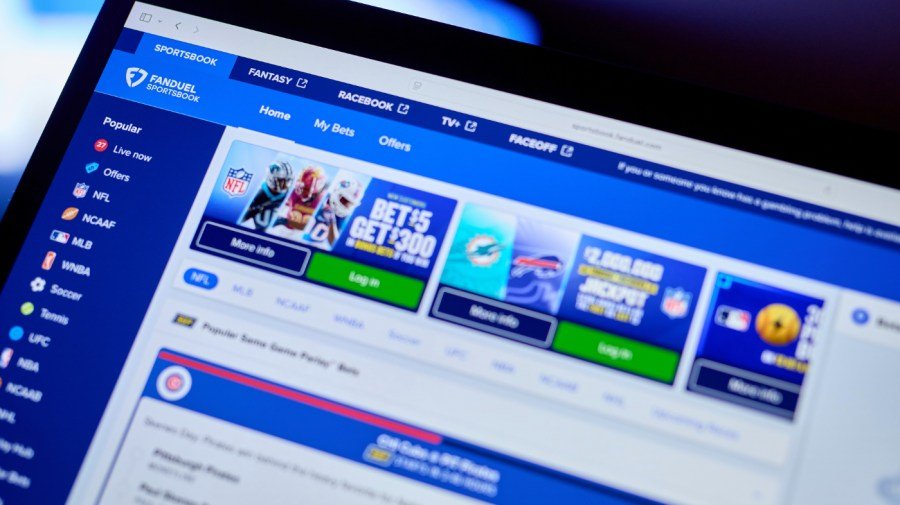
Online sports gambling has become one of the fastest-growing industries in America, but with that growth has come an irresistible temptation for lawmakers to keep raising taxes on it.
Over $13 billion flowed through legal sportsbooks in 2024. Yet what looks like free money for the government is really paid for by consumers. If adults are free to gamble, then they should be free to do so without punitive tax schemes that drive up costs and push bettors back toward the black market.
The legalization of online sports betting brings much of this gambling out of the shadows, where state governments can impose taxes specially created for sports betting. But some states have handled this more responsibly than others. There are productive and counterproductive ways to tax gambling.
The good approach is straightforward: Keep rates low and stable.
A modest, predictable tax structure gives operators certainty, encourages competition and leaves consumers with better odds and lower costs. It also provides states with a sustainable source of revenue without driving bettors to untaxed offshore sites where they can easily be taken advantage of.
Unfortunately, many states have embraced the counterproductive approach. Instead of encouraging a healthy, competitive market, they have chosen sky-high tax rates and bizarre per-transaction levies.
The worst offenders are New York, New Hampshire and Rhode Island, each of which taxes online sportsbooks at a confiscatory 51 percent of gross revenue. Pennsylvania isn’t far behind at 36 percent, and Vermont comes in at 31.7 percent.
Illinois has gone a step further, adding a per-bet excise tax — $0.25 on the first 20 million bets an operator handles each year, and $0.50 thereafter.
FanDuel has already announced that it will pass the tax directly to customers, raising the effective cost of every wager. The announcement is unsurprising, given that increases in business taxes are frequently passed to consumers.
Then there’s Tennessee, which doesn’t even stop at taxing gross revenue. Instead, it taxes the online betting sites’ “total handle” — all bets placed, before any winnings are paid out.
This is equivalent to taxing a restaurant based not on its profits, but on the entire value of food orders, regardless of the cost of ingredients, service, advertising or whether the restaurant makes a profit.
When states impose crushing taxes on sportsbooks, those costs don’t vanish into thin air. They are passed to consumers in several ways.
For example, promotions and bonuses dry up. In healthier markets, operators compete for customers with deposit matches, free bets and generous bonuses. In high-tax states, those perks disappear, leaving bettors with fewer benefits and less incentive to use legal platforms.
High taxes push consumers toward offshore and illegal markets. If bettors feel squeezed by bad odds, fees and disappearing perks they may return to the unregulated platforms that are not burdened by punitive regulations.
Pushing people back to the illegal market undermines consumer protections, cuts into state revenues and defeats the very purpose of legalization.
Not to be left out, the federal government has joined the pile-on, though to its credit it is being more honest and taxing consumers directly.
The recently passed One Big Beautiful Bill Act reduced the ability of gamblers to deduct losses against winnings from 100 percent to 90 percent. That means a bettor who breaks even for the year is still forced to pay tax on 10 percent of his or her wagers — phantom “income” that doesn’t exist.
The proposed FAIR BET Act would undo this mistake, but unless Congress acts, bettors will be stuck paying taxes on money they never earned.
This is government overreach at its most predictable. Politicians assume they can squeeze an industry without consequences, but in reality, they are squeezing individual consumers.
The ideal tax system for gambling is clear: Tax it like any other business. But since politicians are set on taxing it differently, the least they could do is stick to well-known basics.
Low, stable tax rates leave room for competition and consumer benefits. Taxes based on profit, not revenue or handle, so businesses are taxed on what they actually earn. And no per-transaction taxes, which unfairly penalize casual bettors and inflate costs across the board.
Online sports gambling can be a legitimate form of entertainment. But high and poorly designed taxes turn it into a government racket, forcing bettors to pay more, discouraging competition and driving consumers back toward the black market.
If policymakers truly care about consumer protection, they should resist the temptation to grab every possible dollar from the industry. Let adults gamble if they choose. Just don’t let the government stack the odds against them.
Justin Leventhal is a senior policy analyst for the American Consumer Institute, a nonprofit education and research organization that advocates for consumers through evidence-based analysis and data.






